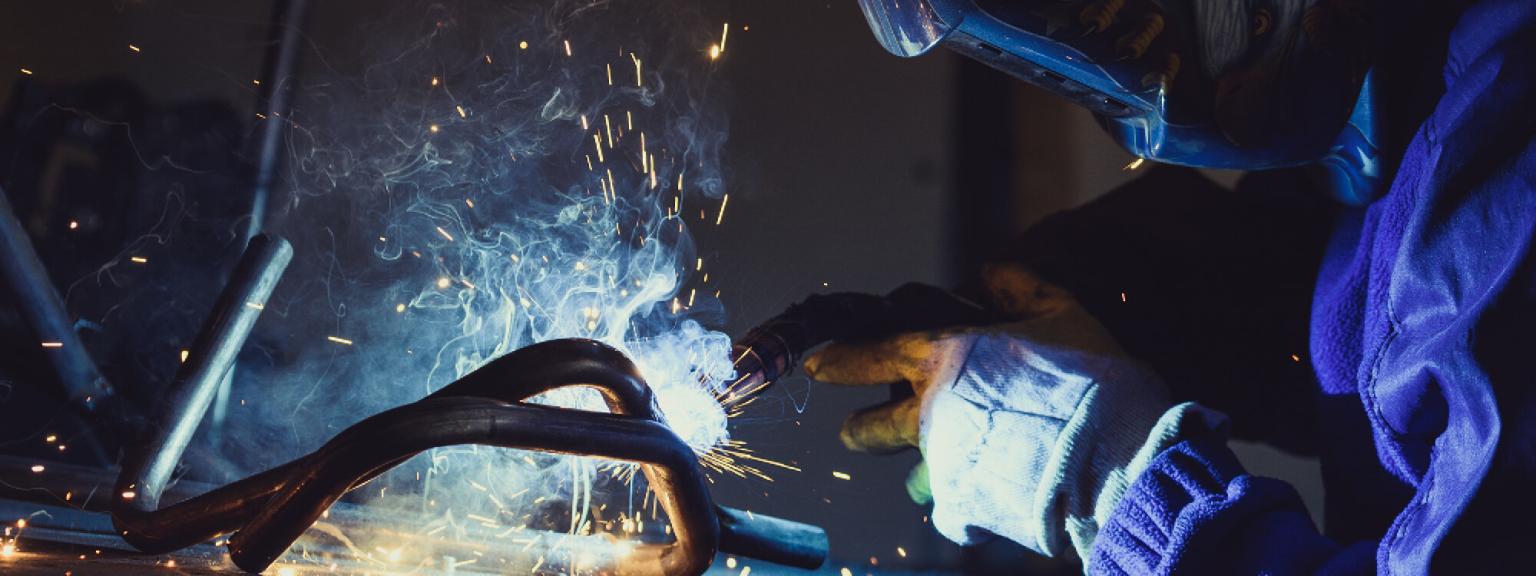
Why the engineering industry needs more skilled trades
The engineering industry is heavily reliant on skilled trades people who currently make up 21% of the industry workforce, but their contribution can often be overlooked or underestimated. In reality, without the large number of specialist welders, fitters, electricians, machinists and technicians, the whole industry would grind to a halt.
Skilled trades people are practical, understand how critical components are manufactured and so not only help the ‘here and now’, but offer great input to the entire product lifecycle as well as to experienced engineers and apprentices alike.
For all these reasons and more, it’s concerning to hear that of the 69% of engineers who believe there is a skill shortage within their sector, one quarter believe that this is in skilled trades, as cited in our Voice of the Workforce research.
We’ve looked into how this shortage of skilled professionals has come about, what current opportunities there are within the industry, and how best to tackle the issue.
Reasons behind the skills shortage
One of the key reasons behind the skills shortage in skilled trades is the historical underinvestment in apprenticeships. This has been the case in the aerospace industry, when the market slowed slightly during the recession. At this time apprenticeship schemes dwindled and we are now feeling the result today with a lack of skilled trades people.
Prior to the recent rise in tuition fees, university education had been more accessible to school leavers over the past three decades, with more degree options on offer adding to the increase in applications across the UK. This coupled a sudden uptick in demand for IT based expertise to keep up with the advancements in personal computing technology, meant that the traditional skilled apprenticeship was marginalised as a viable option for many young adults making their career choices.
In the same vein, younger generations continue to view skilled trades as the less exciting end of engineering. Skilled trades are a major part of the construction and maintenance of vessels within the maritime sector. Young people may see a plumber as someone who wears overalls and uses a wrench to tighten pipe fittings but clearly the work of a plumber is often much more than that. They could be the person who is ensuring a safe and efficient water supply to the biggest aircraft carriers ever constructed in the UK. More needs to be done to educate young people about the importance of skilled trades positions and how crucial they are to the success of major projects.
On the opposite side of the spectrum, the ageing workforce is viewed as one of the largest threats to sector growth, with 30% of engineers saying so. Despite it being recognised as a problem by a third of engineers, only 19% said that their organisation has communicated how it plans to deal with the issue. With a lack of direction from industry employers and with 40% of the engineering workforce expected to retire in the next twenty years, it’s likely the skills shortage will remain for some time.
Opportunities for skilled trades professionals
Not only is there a historic skills shortage but there is also a serious demand for skilled trades people as a result of numerous engineering projects in the construction phase. Composite specialists and laminators are particularly in demand across the aerospace, automotive and maritime sectors, due to advancements in material technology.
Projects such as the Queen Elizabeth Class aircraft carrier support programme in Portsmouth and The Successor in Barrow are in need of thousands of skilled trades people for the final stages of construction and are looking for welders, platers, typesetters, electricians and mechanical fitters. The naval sector has commenced its most ambitious shipbuilding program with Dreadnought, a nuclear submarine in Barrow, Type 26 in Glasgow and the aircraft carriers still under construction. This will require hundreds of specialist skilled trades but without significant investment in skills it is unlikely the UK will be able to support such ambitious build programs again in the future.
Within the automotive sector technological advancements in Formula 1 and the wider industry are amplifying the need for highly trained and skilled individuals, not just to design the vehicles but also to build them. Powertrain technicians, welders, fabricators and CNC setters, operators and programmers are heavily in demand in this field.
Aerospace is another engineering sector which is in desperate need of more skilled trades. Aerospace is experiencing an unprecedented demand for skilled trades people due to Boeing and Airbus having a backlog of over 12,000 aircraft orders. This production need is set to continue for the next 7-9 years, and the pressure on the supply chain is huge. The industry needs the right skills to alleviate the pressure and complete the orders.
Investment continues to be made in large projects across the engineering sectors and there will always be a need for more skilled trades people. If you’re keen to learn more about the current skilled trades vacancies we’re recruiting for please visit our boat builder, composite, CNC, electrical fitter, electrician, mechanical fitter, mechanic, pipefitter and welder job pages. Alternatively, you can speak to one of our specialist recruitment consultants directly, please call 01489 898989 or email trades@matchtech.com.
STEM insights
Sector insights
- Engineering insights
- Aerospace insights
- Automotive insights
- Maritime insights
- Infrastructure insights
- Highways insights
- Rail insights
- Building Services insights
- Water & Environment insights
- Energy insights
- Renewables insights
- Oil & Gas insights
- Power & Nuclear insights
- Engineering Technology insights
- Telecoms insights
- Technology insights
- AI & Robotics insights
- Cloud insights
- Cyber Security insights
- ERP insights
- Development insights
- Project Management insights